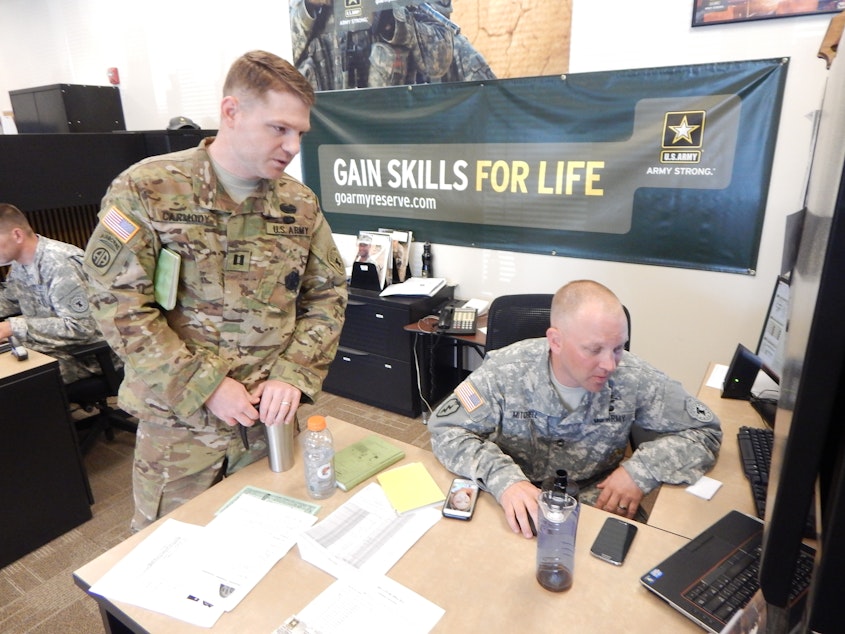The Precise Science Behind Military Recruiting Centers

The first thing a new recruit will encounter at the Army Career Center in Tukwila, Washington, is a locked door.
It’s one of the changes at recruiting stations since the shootings earlier this month at a military facility in Chattanooga, Tennessee.
“We have added a few anti-terrorism measures just out of caution,” said Army Captain Kellam Carmody, who’s in charge of this facility.
Some members of Congress now want recruiters armed against potential attackers. But while those measures may be necessary for safety, some recruiters have mixed feelings about them, because they might also deter potential recruits.
“We want to be approachable. It’s an all-volunteer force. We don’t want to have any additional barriers to those that may be interested in serving,” Carmody said.
Sponsored
The center is located on a main road in a shopping center. It shares a parking lot with a Starbucks and a Value Village.
Carmody said recruiting offices rely on visibility and accessibility. "Because we want people to easily you know be able to find us and come speak with us,” Carmody said.
Maintaining the ranks of the armed forces is essential. In Washington state that means getting at least 1,500 new service members a year to sign up.
And where a recruiting station is located can make all the difference.
As a mission market analyst for the Army it’s Tracy Cutler’s job to find the most fruitful locations. “I analyze demographics, ethnicity, languages spoken in the household,” Cutler said.
Sponsored
Cutler watches trends. A lot of the information he uses is publicly available. Some of it comes from a data warehouse at Fort Knox.
“The biggest thing is when I see high schools being built. When you see that expansion, that pops. Also, when you look at some of where businesses are populating. New businesses – Costcos, Wal-Marts, things like that,“ Cutler said.
And colleges. Recent graduates, or current students looking for a change. “They're underemployed. Maybe they're getting tired of going to school. Or they want a break from school,” Cutler said.
Cutler tracks what motivates recruits from different counties. The recruits who live in the areas around Washington’s Joint Base Lewis-McChord are driven by a desire to serve the county, and the education benefits they can gain from military service.
But in the northern part of the state, it’s all about adventure. “I want to jump out of airplanes I want to be airborne ranger. I want to do civil affairs. I want to be a combat engineer,” Cutler said.
Sponsored
Cutler analyzes the recruitment numbers weekly and reports them to command. When a location underperforms, it’s moved.
The Tukwila Center is well established. It hosts recruiters from all four branches of the service. About a dozen work in the Army office.
Even after the Tennessee shootings, as discussions continue in Washington, D.C., about protecting centers like this, Carmody said his troops have to stay focused. “You know personally, any time one of our brothers in arms is injured or killed it's a sad, sad situation. But we still have a job to do so we have to focus on the task at hand and keep working,” Carmody said.

